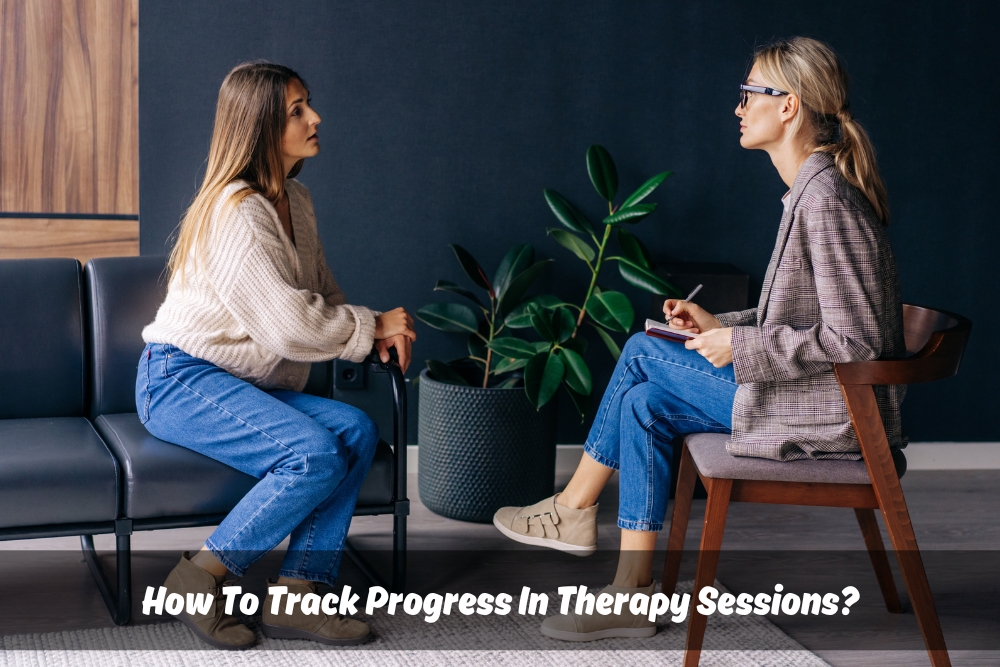Tracking progress in therapy sessions is crucial for individuals seeking mental health support. It enables you to gauge your development, identify areas of improvement, and ensure that therapy is effective for you. This dives into why tracking therapy is super important. It’ll cover what to watch for in sessions, how often to check in, and even cool tools to help. Plus, it’ll show you how to analyse your progress and what to do if things seem stuck.
Why should you track your therapy progress?
There are several benefits to monitoring your own progress in therapy. Here are a few key reasons:
- Stay pumped: Seeing progress is like getting a high five – it keeps you motivated, even when you want to throw in the towel.
- Chat it up with your therapist: Tracking what works (and what flops) in therapy helps you have better conversations with your therapist. You can focus on the good stuff and ditch the rest.
- Get to know yourself better: Therapy can seriously shift your whole perspective. Tracking helps you see how it’s changing your thoughts, feelings, and even how you deal with life’s curveballs.
What should you track during therapy sessions?
Think about it like this: what did you sign up for therapy to fix in the first place? Maybe it was anxiety, low mood, or relationship woes. Whatever it is, track those things! Here are some ideas:
- Identifying your initial goals and benchmarks:
-
- Starting therapy is like hitting the gym with your therapist as your coach. You wanna set some clear goals together, like maybe chilling out your anxiety, sleeping like a champ, or finding better ways to deal with stress. Using SMART goals (meaning Specific, Measurable, Achievable, Relevant, and Time-bound) is a boss move, ‘cause it gives you a clear path to track how you’re doing.
- How will you know you’re reaching your goals? Think of it like this: if your goal is to chill out more, a benchmark might be having fewer freak-out moments each week. Or, for better sleep, maybe it’s about nailing a sleep schedule and waking up feeling like a human again most mornings.

- Tracking symptoms or behaviours you want to improve:
-
- the reason you’re seeing a therapist might play into what you track. Feeling down? Maybe you wanna keep tabs on your mood swings. Getting super frustrated all the time? Track that anger! Whatever it is, your therapist might have some scales to rate how intense it gets, or you can just make your own system to see how often it happens.
- You can also keep tabs on habits you’re trying to ditch, like beating yourself up or hiding from people. Tracking this stuff can help you figure out what sets you off and where things get tough. Then, you and your therapist can brainstorm ways to tackle those situations head-on.
How often should you track your therapy progress?
Tracking frequency depends on your needs and preferences. Here’s a general guide:
- Daily: Ideal for monitoring fluctuating symptoms like mood or anxiety. Daily tracking allows you to identify potential triggers and patterns that might not be apparent with less frequent tracking.
- Weekly: A good option for tracking behaviours or overall well-being. Weekly tracking provides a good balance between capturing trends and avoiding feeling overwhelmed by daily data collection.
- Monthly: Useful for assessing longer-term trends and reflecting on broader progress. Monthly tracking allows you to see how far you’ve come over a longer period and identify areas for continued focus.
What tools can help you track therapy progress?
Feeling overloaded? No sweat! There are some super cool tricks to keep tabs on how therapy’s going, easy-peasy.
- Therapy journal: A pen-and-paper journal allows for flexible and personal reflection. You can jot down whatever pops in your head after sessions, like thoughts, feelings, experiences, and the stuff you learned or realised. This can be especially helpful if writing is your jam!
- Mood tracker apps: There are tons of cool apps out there that can help you track your moods, any symptoms you’re feeling, and even how you’re progressing towards your goals. They’re super handy ’cause they can show you charts and stuff so you can see what’s going on over time. Look for ones you can customise to track whatever matters to you, and some even connect with fitness trackers to give you a whole picture of your health.

- Talk to your therapist: Don’t hesitate to talk to your therapist about tracking methods. They can recommend tools and techniques that best suit your needs and preferences. Your therapist can also help you interpret your tracked data and identify areas for further exploration.
How can you analyse your therapy progress?
Think of yourself as a therapy progress detective! Here’s how to crack the case:
- Review your notes: Look for any patterns in your symptoms or behaviours. Are things trending upwards (yay!) or staying the same?
- Identifying effective techniques: Figure out what’s working – keep doing those things!
- Discussing challenges: Stuck areas might need a new approach. Don’t be afraid to chat about it with your therapist.
What if you don’t see progress in therapy?
Sometimes, despite your best efforts, progress might seem slow or non-existent. Here’s what to do:
- Open communication with your therapist: Be totally honest about what’s bugging you. They can help you rethink your goals, switch things up if what you’re doing isn’t working, or even try totally new stuff. Therapy is all about working together, and being upfront is key to making sure it helps you out.
- Consider external factors: Life events, new meds, or just not enough sleep can totally slow you down. But hey, figuring out what’s going on outside your head lets you and your therapist brainstorm ways to fix it and get you back on course.
- Be patient and persistent: Therapy’s a trip, not a one-and-done deal. There’ll be bumps in the road, for sure. But the key is to hang in there and keep at it. Even little wins add up to big changes in the long run.
Conclusion
Therapy progress isn’t just about checkmarks, it’s about owning your mental health journey. It shows you how strong and adaptable you are, and lets you cheer yourself on. Therapy’s a two-way thing, remember? Tracking your progress actively helps you and gives your therapist the info they need to make your sessions super effective.
Call to action
Are you ready to unlock the full potential of therapy? At Auburn Health, we believe in a collaborative approach to mental healthcare. Our awesome therapists will guide you through the process, helping you create a plan that fits you perfectly. We offer one-on-one therapy, couples sessions, and even family therapy – whatever works best for you. Don’t wait! Reach out today and start your journey to a happier, healthier you!


